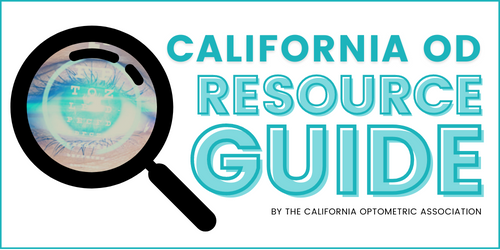Sports & Vision
Do you wish you could improve your batting average in the weekend softball league, cut a few strokes off your golf score or take your tennis game to the next level? You could do just that by improving your vision. Vision, just like speed and strength, is an important factor in how well you play your sport.
Your vision is composed of many skills, and just as exercise and practice can increase your speed and strength, it can improve your vision skills. You can select from the list below for explanations of specific vision skills and tips to improve them. The definitions that follow are general and should not be considered complete or thorough, but they give you a general idea of the types of exercises that can be helpful when incorporated into a total program of sports vision care.
Some athletes will have visual difficulties that will need individual, professional attention and will not benefit from these exercises alone. An evaluation by a sports vision optometrist can pinpoint your individual problems and needs as related to your sport. Remember, a thorough eye examination by your doctor of optometry is a great place to begin getting the winning edge.
Always wear the proper eye protection for your sport. When appropriate, use proper eye protection when you are trying these exercises. Your doctor of optometry can advise you about what is best for you.
Dynamic Visual Acuity
If you are playing a sport like racquetball, tennis, soccer or hockey, it is important that you be able to clearly see objects while you and/or the objects are moving fast. Without good dynamic visual acuity, you are going to have a difficult time in sports like these.
Visual Concentration
When you commit an error on an easy ground ball or miss a short putt, it may be that you are distracted by things that are happening around you. Our eyes normally react to anything that happens in our field of vision like spectators, other participants and even the wind blowing leaves on an overhanging branch. Visual concentration is the ability to screen out these distractions and stay focused on the ball or the target.
Eye Tracking
When you are playing any sport with a ball or a fast moving opponent, it is important that you be able to follow objects without much head motion. Eye tracking helps you maintain better balance and react to the situation more quickly.
Eye-Hand-Body Coordination
Eye-hand-body coordination is how your hands, feet, body and muscles respond to the information gathered through your eyes. It is an important part of most sports because it affects both timing and body control.
Visual Memory
When you are pushing a fast break up the basketball court, leading a rush up the ice in hockey or catching the big wave amid a crowd of surfers, you need to process and remember a fast moving, complex picture of people and things. This is called visual memory. The athlete with good visual memory always seems to be in the right place at the right time.
Visualization
Picture yourself hitting a perfect drive: long and right down the middle of the fairway. Believe it or not, picturing yourself doing it can actually help you do it. Visualization is the skill that enables you to see yourself performing well in your "mind's eye" while your eyes are seeing and concentrating on something else, usually the ball. Using scanning techniques, researchers have found that the same areas of the brain that light up during performance also do so when you visualize the performance.
Peripheral Vision
When a soccer player sees a teammate out of the corner of his eye, he is using his peripheral vision. Since much of what happens in sports does not happen directly in front of you, it's important to increase your ability to see action to the side without having to turn your head.
Visual Reaction Time
When the pitcher releases the ball do you swing a little late and hit a weak foul down the line or worse, miss the ball completely? Or, maybe you just can't quite return that tennis serve? You need to improve your visual reaction time, or the speed with which your brain interprets and reacts to your opponent's action.
Depth Perception
In racket sports, depth perception enables you to quickly and accurately judge the distance between yourself, the ball, your opponents, teammates, boundary lines and other objects. When you are shooting or hunting, if you consistently over or underestimate the distance to your target, poor depth perception may be at fault.
Success in sports depends on an accurate, healthy visual system. Visual fitness and physical fitness combine to give you the winning edge. A sports vision optometrist is a valuable teammate in helping you perform at your most competitive level.
1.png)

1.png)


.png)




.png)
.png)
.png)
.jpg)
.png)
.png)
.png)
.png)
.png)
.png)

.png)

.png)
.png)
